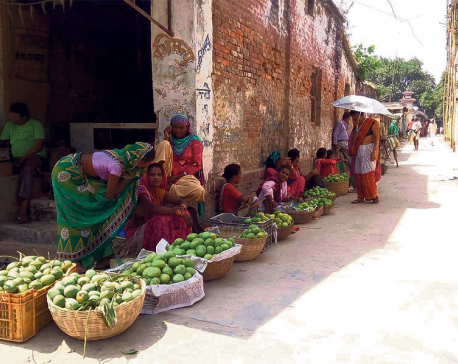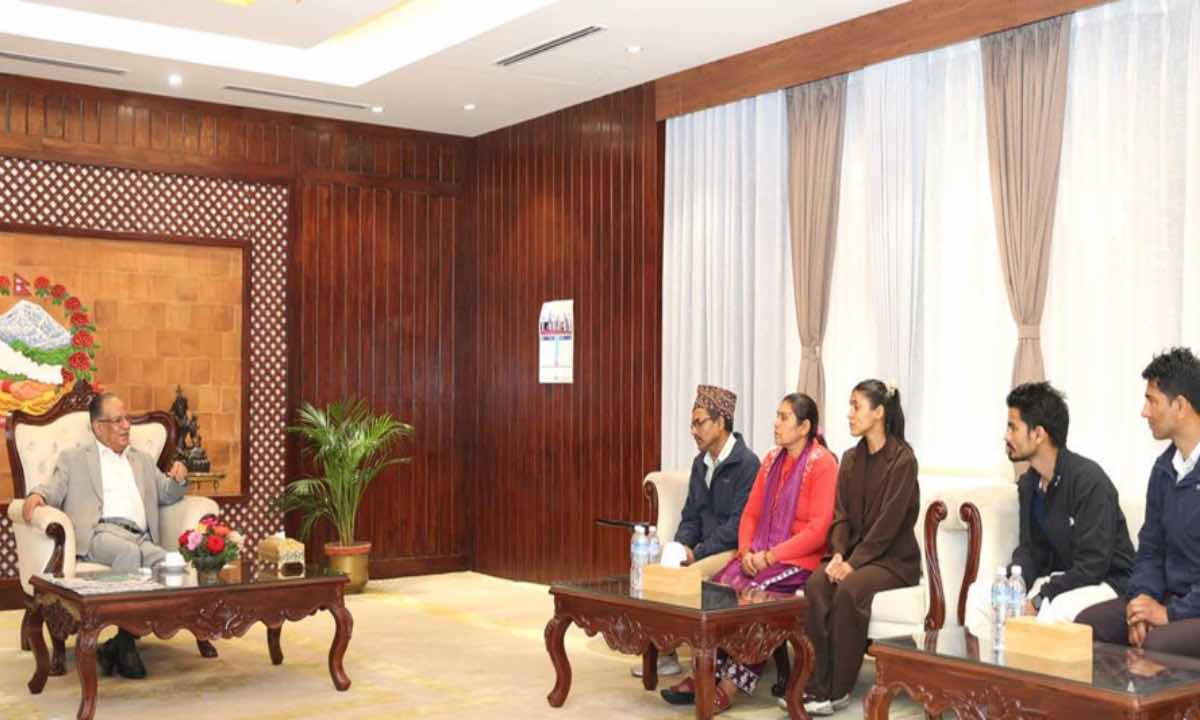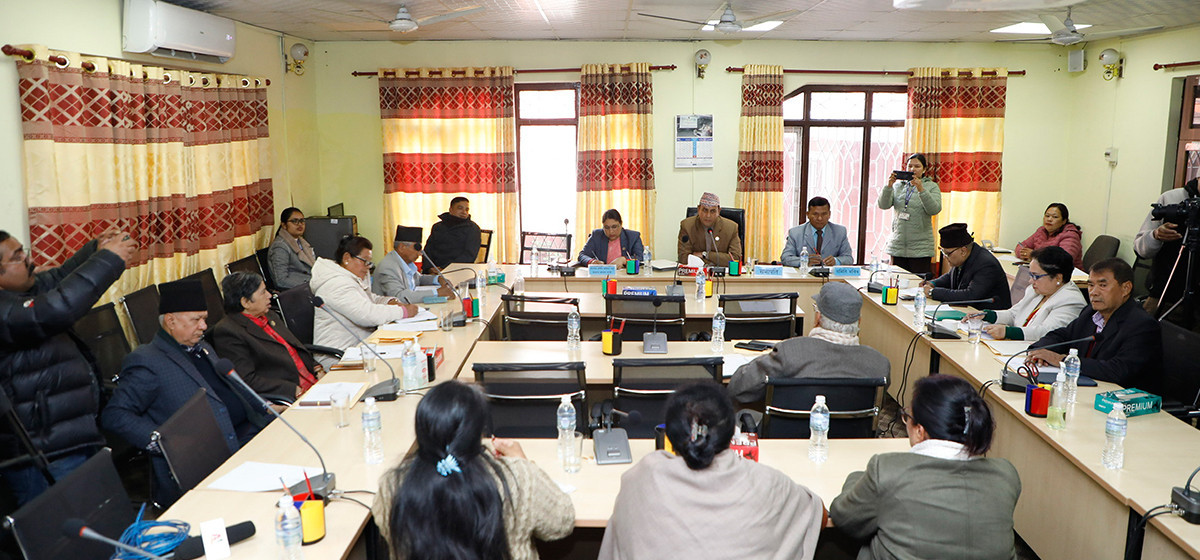
OR

In absence of compassion and empathy for the needy, religious rituals we perform during festivals mean literally nothing.
The Dashain festivities are over. But the spirit of Durga Pooja, Maha Navami,Vijaya Dashami, Shakti worships, Deepawali and allied rituals continue to linger in our minds and heart. We are once again reminded that truth always triumphs over evil: satyamev jayate.
We repeat this eternal principle again and again. In fact, we have been virtually chanting it from school essays to public speeches all through our lives. Do we really believe in the assured victory of good over evil? Or do the misery and inequality swamping the world make us skeptical about the much-glorified siddhant?
Howsoever we may reiterate our faith in the principle of punarjanma (reincarnation) and karma, the fact remains that the current generation believes in quick-fix results. But the cycle of karma is not a fast food chain. It is not a one-off hip-hop hit either. Have we ever thought of the contribution we have made to our fellow beings before cribbing and whining that we have not received enough from the Almighty?
In the absence of compassion and empathy for the needy whatever, religious rituals we perform during festivals mean precious little. How so many lamps we may light, how so many crackers we may burst and how as much dakshina we may offer to professional priests, darkness around us will continue to prevail. The heart will remain pitch dark. All the artificial lights outside will fail to ignite a ray of joy or hope inside.
Why so?
Because we are trying to enter into a transaction with God! And we have been doing that for ages. We have been believing that offerings in form of gold, money and finery to deities, elaborate poojas and yagyas, teerth yatras (pilgrimages) will fetch returns from the Almighty in more than equal measure. The underprivileged and the downtrodden rarely figure in this scheme of things. No wonder, while the coffers of temples and other places of worship overflow with gold and currency and their interiors put seven-star hotels to shame in glitz and glitter, we find the surroundings swarming with beggars and the poor seeking alms.
We do toss a coin or two or, once in a while, offer them something to eat. And that’s it! We walk out complacently with the belief that the deal with the Lord has already been struck in the sanctum sanctorum. Why should there be any need, therefore, to look for Daridranarayan residing within every poor person?
Virtues in decline
This tragic drama is enacted with special fervor during our festivals. Few are the occasions when social inequality is at a more brazen and shameless display. While the poor scrounge for a festival-fit meal and means for celebration, the rich and the wealthy compete in display of wealth. Some even choose to gamble in the hope that this will lure Lakshmi, the Goddess of wealth. There is no limit to human greed and stupidity.
While greed to some extent is understandable, only the dumbest can presume that the omniscient, omnipotent and omnipresent Almighty will like to get engaged in give-and-take games with us. But look around and you will discover that there is no dearth of such human beings in all societies and in all geographies.
On the contrary, there are very few who are willing to share with friends, neighbors and others who are worse off. Most people are chary about charity, particularly the rich. The likelihood of the poor standing by each other is higher than the rich and the powerful. Latest surveys have shown that inequality is on the rise globally.
Yes, we cannot paint all moneybags with the same color. Microsoft’s Bill Gates, Berkshire Hathaway’s Warren Buffett, Facebook’s Mark Zuckerberg are some of the names that instantly come to mind for parting with billions for worthwhile and sustainable philanthropic projects.
Many Asian entrepreneurs have shown large hearts though on a relatively lower scale for obvious reasons. At the same time, the fact remains that several charities are run by the big and mighty for availing tax benefits.
Describing the basic guidelines of dharma, Hindu philosophy refers to 10 yamas (restraints) viz ahimsa (non-injury), satya (truthfulness), asteya (non-stealing), kshama (patience), daya (compassion) etc. and 10 niyamas (practices or observances) eg santosha (contentment), dana (charity), astikya (faith), vrata (sacred vows), tapas (austerity) etc.
According to masters of Vedas and Upanishads, yama and niyama are the means to control the vitarkas—the evil or negative mental thoughts. For each vitarka, one can create its opposite through yama and niyama and succeed in life. That is why in the Hindu way of life it was expected that restraints and observances should be inculcated into the character of children from a very early age. This would have ensured that children would have emerged as refined and spiritual beings, keeping the instinctive nature in check.
But I hate to find generosity, sharing and charity declining festival after festival, year after year. I sorely miss the celebratory gathering of friends, staff, relatives—close and distant, et al. We have become our own prisoners. We have closed the doors to our hearts. Let’s prize them open. Let caring and sharing begin once again with renewed fervor.
We want heartfelt festivities back.
The author is Chairman of Bhuramal Lunkarandas Conglomerate (BLC).
Views are personal
feedback@basantchaudhary.com
You May Like This

Gold price declines by Rs 900 per tola
KATHMANDU, Aug 27: The price of gold has declined by Rs 900 per tola on Tuesday. ... Read More...

Mango production plummets in Siraha, Saptari
LAHAN, June 29: Siraha and Saptari, regarded as the mango capital of the country, saw a decline in the production... Read More...

Non-performing loans of banks decline despite surge in lending rates
KATHMANDU, Nov 29: Non-performing loans (NPL) of commercial banks slightly increased in the first quarter of the current fiscal year 2017/18... Read More...




Just In
- Chemical fertilizers imported from China being transported to Kathmandu
- Man dies in motorcycle accident in Dhanusha
- Nepal face early setback as four wickets fall in powerplay against UAE
- Australian unemployment rate rises to 3.8 percent in March
- Gold price increases by Rs 700 per tola
- Fire destroys wheat crop in Kanchanpur, Kailali
- Bipin Joshi's family meets PM Dahal
- State Affairs and Good Governance Committee meeting today















Leave A Comment